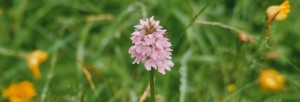Karma, that’s a good Buddhist word and it begins with K – maybe I’ll write about that this week. That’ll be easy.
Except that I have a problem with karma. I just don’t believe in it at all. It makes perfect sense to me that what we do now affects what happens later. Simple cause and effect. Or, in most cases, not quite so simple, because most things in life are over-determined – caused by more than one factor.
What I don’t believe is that anything I’ve done in a past life is having an effect on my present life. I certainly don’t believe that the illnesses and other troubles I have and have had are caused by something bad I did in a previous life (or even in this one). I believe that these problems just are. Stuff happens, end of.
Why? In part because I don’t believe in past lives or future lives. This life is the only one I’ve got. I know a lot of people who believe otherwise and it really matters to them. That’s fine, and they may be right. But, as far as I’m concerned, when I die my atoms are going back into the universe (though hopefully some are going via the MS Tissue Bank). Just the same way they are swapping in and out of me all the time. Sometimes me, sometimes not me.
And the universe just goes on. Earth quakes quake. Storms wreak havoc. Floods soak and drown. The sun shines. Heatwaves happen. None of this is wrought by the hand of an angry god. None of it is caused by what the individuals who suffer it’s effects did in their non-existent past lives.
It may, at least in part, be caused by what human beings have done in the past. I do, for instance, believe in climate change and I do believe that human activity is a factor in it. I also believe that we might be able to reduce it’s effects by the actions we take now. At least we need to try.
I do my best to do the right thing now, for myself, but also for the community, the human race, the planet. Well, at least as far as I can figure out what that is. My incentive is just because that is the right thing to do, and because that way aligns me with that positive, loving, creative force that I call God.
And if it is true that my positive actions in this life will generate good karma that’s all to the good. Even if I don’t believe in it.





